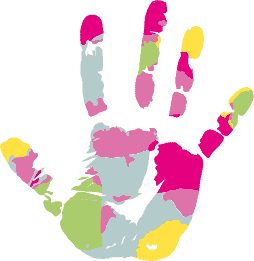Mindful skills to help kids self-regulate
A significant benefit of learning and teaching meditation to your family is that mindful skills help kids self-regulate, which in turn helps them manage strong emotions and stress.
If we don’t teach children how to navigate their way through their emotional state, they will react to situations and people uncontrollably. And as they grow older, this can result in an unease of expressing their feelings and/or manifesting feelings of guilt, shame, or resentment.
Bad behaviour? Or Communication?
As a foster mum, it is challenging when the behaviour appears to be ‘bad’. But with a mindful practice, I have learned that it is a source of communication. Children and young people will behave rather than articulate their feelings. Our role (as mindful adults) is to ‘investigate’ this; to look behind the behaviour.
Of course, this is difficult to do if you feel yourself pulled (or dragged!) into the drama of the moment. So, turning to a mindful breath, our tuning in to your own body can help reset your rising stress levels and is key to ‘holding the space’.
Holding the space could also be referred to as coregulation, where our children are unable to regulate their emotions, but our presence, our energy, and our actions help them coregulate to our (hopefully!) calm state.
It is normal that there will still be times when you feel drawn into the tornado of emotional chaos. Instead of feeling despondent at your strong reactions, you can press your meditation ‘reset’ button.
When we have a challenging moment in our household, I meditate on it. By this, I mean I sit with what I am feeling and thinking and turn towards it. I don’t analyse the whys and whats… I notice my breath, I see my body, I notice how I am feeling, and I hold this in my attention with complete acceptance that this is how I think.
You might think this is the opposite of what you should (or want to) do. But I’ve been practising meditation for 30 years and I know the longer I avoid this, the more it will pop up in the future in a resentful remark.
When we allow ourselves a moment to sit with a moment of suffering, there can be some valuable insights into our behaviour, which brings self-understanding and self-compassion. This helps us communicate clearly to our families and (sometimes) apologise for how we reacted.
Plus, if I want my family to own and process their feelings and thoughts more mindfully, then I need to model this to them.
My foster son found it surprising and slightly amusing when I declared “hold on, I’ve never had a 12-year-old in my home before… I’m doing my best!”
Honest communication is key.
And this means being honest with yourself when you react… owning your response and forgiving yourself.
If you do this, then you can teach this to your family too. It offers an opportunity for mindful listening and ‘hearing’. It promotes honest and clear communication with your family and kids; explaining that you care, worry, and love them. We often take for granted that our children know this. But saying it out loud can be a powerful affirmation that helps them feel noticed, acknowledged, and safe.
Owning our actions and reactions helps us to make a different choice next time. It teaches young people that we are all human, doing our best, and that even if they make mistakes (we all do), they are still loved.
Noticing the triggers mindfully
There may be triggers (both externally and internally) that the young person is oblivious to when they react. They don’t realise that these stress triggers are there or building until there is an explosion of emotion.
Sometimes children demonstrate their anger. Others struggle and display more passive behaviours (ignoring what you say instead of arguing), or hiding their actions.
By teaching young people meditation, we can help young people feel and sense those triggers (breathing faster, heart beating, feeling hot, sore tummy etc) and give them some mindful strategies in these moments, it’s as if we have given them a Ninja power… they can press their own, personal, mindful reset button.
It teaches them that they are not at the mercy of these moments of struggle and suffering and can choose a different response.
If they learn to do it for their wellbeing, they can equally share this practise with their peers.
And this… is how we build a worldwide community of peace.
Still looking for answers?
If you need help to learn more about mindful skills to help kids self-regulate:
Learn to teach meditation at home

Discover the Connected Kids programme…



